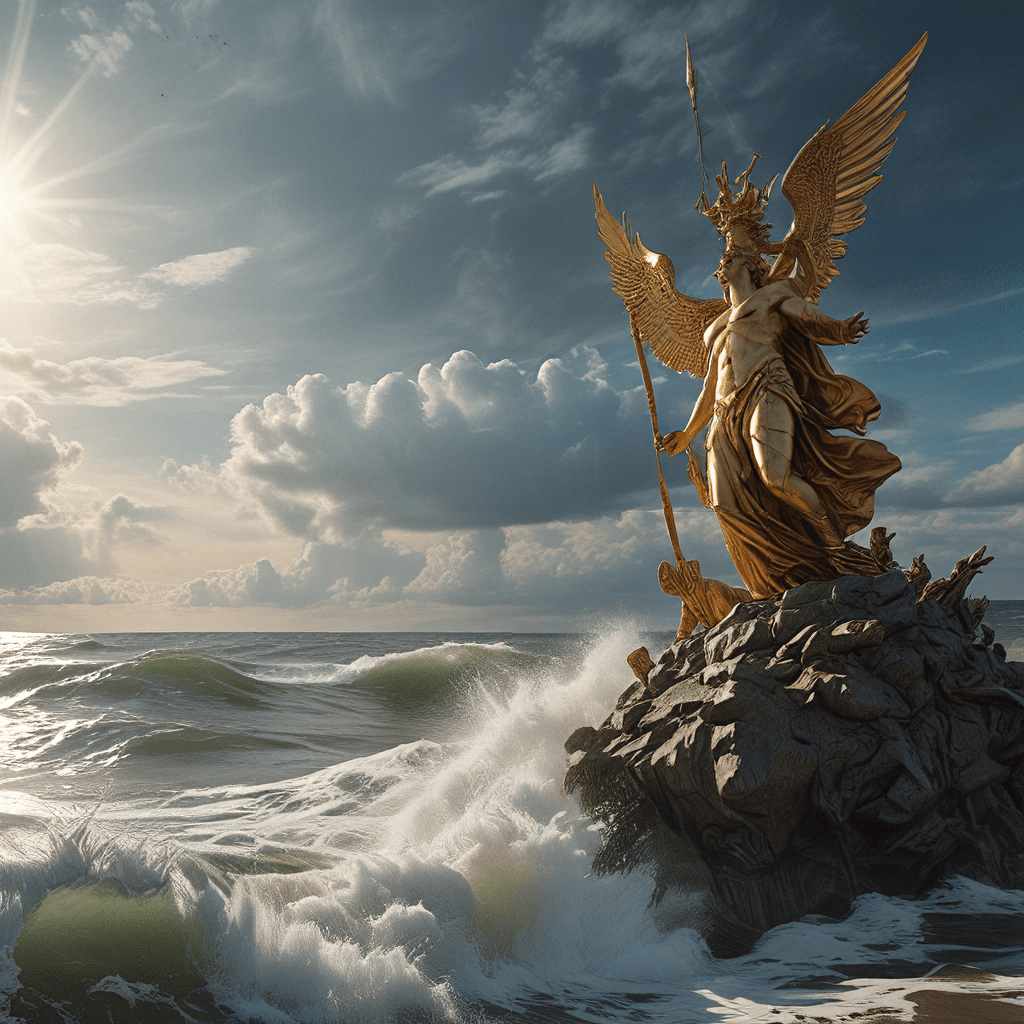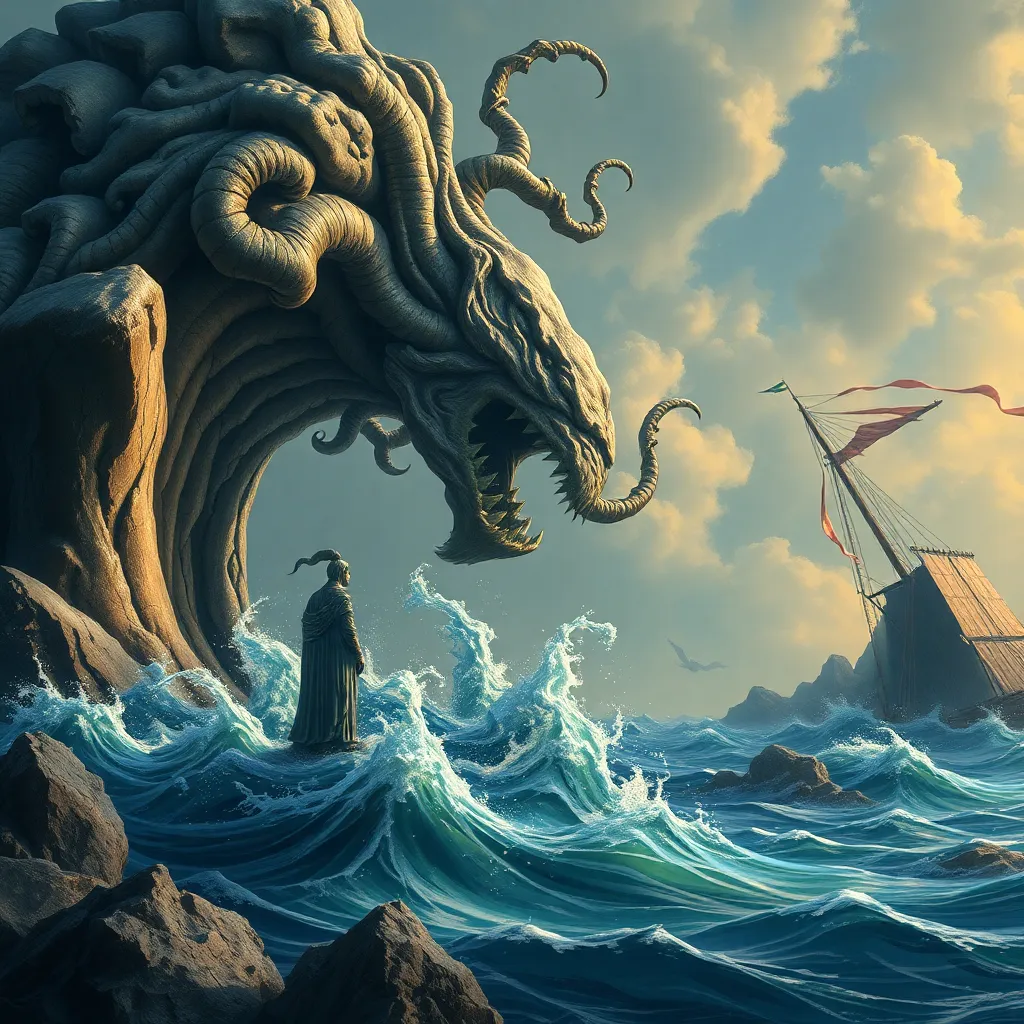The Role of Nature in Finnish Mythology
Introduction
Nature is an integral part of Finnish mythology. From the vast forests to the icy lakes and windswept mountains, the Finnish people have long believed that nature is alive with spirits and deities. This belief has had a profound impact on their culture, their way of life, and their understanding of the world around them.
I. The Forest: A Sacred Realm
In Finnish mythology, the forest is a sacred place, a realm of mystery and enchantment. The trees are believed to be the homes of spirits and deities, and the forest itself is said to be the gateway to the Otherworld. The Finnish people have always had a deep respect for the forest, and they believe that it is important to protect it and preserve its natural beauty. The forests provide sustenance and shelter to the people, and they also provide a place of solace and peace. The forest is a place to go to connect with nature, to find inspiration, and to experience solitude. It is a place of wonder and magic, where anything is possible. The forest is a place where the imagination can run wild, and where the boundaries between the real world and the world of myth and legend blur.
II. Water: A Source of Life and Renewal
water is also a sacred element in Finnish mythology. The lakes, rivers, and streams are believed to be the homes of water spirits and deities. Water is seen as a source of life and renewal, and it is often used in rituals and ceremonies to cleanse and purify the body and the spirit. The Finnish people have a deep respect for water, and they believe that it is important to protect and preserve its natural beauty. The water provides sustenance and life to the people, and it is also a place of recreation and relaxation. The water is a place to go to swim, fish, and boat, and it is also a place to connect with nature and to find peace. Water is a source of wonder and mystery, and it is a place where anything is possible. The water is a place where the imagination can run wild, and where the boundaries between the real world and the world of myth and legend blur.
III. Stone: A Symbol of Power and Permanence
Stone is another important element in Finnish mythology. Rocks and stones are believed to be the homes of spirits and deities, and they are often used as altars and boundary markers. Stones are seen as a symbol of power and permanence, and they are often used in rituals and ceremonies to protect the people and to ward off evil spirits. The Finnish people have a deep respect for stone, and they believe that it is important to protect and preserve its natural beauty. The stones provide shelter and protection to the people, and they are also a place of rest and relaxation. The stones are a place to go to sit and reflect, and to connect with nature and to find peace. Stones are a source of wonder and strength, and they are a place where anything is possible. The stones are a place where the imagination can run wild, and where the boundaries between the real world and the world of myth and legend blur.
IV. Animals: Messengers and Supernatural Beings
Animals play an important role in Finnish mythology. They are often seen as messengers from the gods, or as supernatural beings in their own right. Some animals are associated with good luck and fortune, while others are seen as harbingers of bad luck or danger. The Finnish people have a deep respect for animals, and they believe that it is important to protect and preserve their natural habitat. The animals provide food and clothing to the people, and they are also companions and friends. The animals are a place to go to learn about nature, to find peace, and to connect with the world around us. Animals are a source of wonder and joy, and they are a place where anything is possible. The animals are a place where the imagination can run wild, and where the boundaries between the real world and the world of myth and legend blur.
V. Weather: A Manifestation of Divine Will
The weather is seen as a manifestation of divine will in Finnish mythology. The gods are believed to control the weather, and they often use it as a way to communicate with the people. Thunder and lightning are often seen as signs of anger, while rain and sunshine are seen as signs of favor. The Finnish people have a deep respect for the weather, and they believe that it is important to understand and adapt to its changes. The weather provides sustenance and life to the people, and it also provides a way for the gods to communicate with them. The weather is a source of wonder and mystery, and it is a place where anything is possible. The weather is a place where the imagination can run wild, and where the boundaries between the real world and the world of myth and legend blur.
VI. The Land: A Living Entity
The Finnish people believe that the land is a living entity, a being with its own spirit and consciousness. The land is seen as the mother of all living things, and it is believed to have the power to give and take life. The Finnish people have a deep respect for the land, and they believe that it is important to protect and preserve its natural beauty. The land provides sustenance and life to the people, and it is also a place of rest and relaxation. The land is a place to go to connect with nature, to find peace, and to experience solitude. The land is a source of wonder and strength, and it is a place where anything is possible. The land is a place where the imagination can run wild, and where the boundaries between the real world and the world of myth and legend blur.
VII. The Cycle of Seasons: A Reflection of Life and Death
The cycle of seasons is seen as a reflection of life and death in Finnish mythology. Spring and summer are seen as times of rebirth and growth, while autumn and winter are seen as periods of reflection and decline. The Finnish people believe that the cycle of seasons is a natural part of life, and they see it as a reminder that everything must come to an end. The Finnish people have a deep respect for the cycle of seasons, and they believe that it is important to live in harmony with nature. The cycle of seasons provides sustenance and life to the people, and it also provides a way for them to connect with the natural world. The cycle of seasons is a source of wonder and mystery, and it is a place where anything is possible. The cycle of seasons is a place where the imagination can run wild, and where the boundaries between the real world and the world of myth and legend blur.
VIII. Nature’s Influence on Human Affairs
Nature has a profound influence on human affairs in Finnish mythology. The gods and goddesses are often seen as manifestations of natural forces, and they are believed to control the weather, the seasons, and the fertility of the land. The Finnish people believe that nature can provide guidance and protection, but it can also be a source of punishment and reward. The Finnish people have a deep respect for nature, and they believe that it is important to live in harmony with it. Nature provides sustenance and life to the people, and it also provides a way for them to connect with the divine. Nature is a source of wonder and mystery, and it is a place where anything is possible. Nature is a place where the imagination can run wild, and where the boundaries between the real world and the world of myth and legend blur.
IX. Conclusion: The Enduring Power of Nature
Nature is an enduring force in Finnish mythology. It is a source of life, sustenance, and guidance, but it can also be a source of danger and destruction. The Finnish people have a deep respect for nature, and they believe that it is important to live in harmony with it. Nature is a constant reminder of the interconnectedness of all things, and it is a source of wonder and inspiration. Nature is a place where anything is possible, and it is a place where the imagination can run wild. Nature is a place where the boundaries between the real world and the world of myth and legend blur.
FAQ
What is the role of nature in Finnish mythology?
Nature is an integral part of Finnish mythology. It is seen as a living entity, with its own spirit and consciousness. The Finnish people believe that nature can provide guidance and protection, but it can also be a source of punishment and reward.
What are some of the most important nature spirits in Finnish mythology?
Some of the most important nature spirits in Finnish mythology include the forest spirit Tapio, the water spirit Ahti, and the stone spirit Ukko.
How do the Finnish people view the cycle of seasons?
The Finnish people see the cycle of seasons as a reflection of life and death. Spring and summer are seen as times of rebirth and growth, while autumn and winter are seen as periods of reflection and decline.
What is the significance of the land in Finnish mythology?
The land is seen as a living entity, a being with its own spirit and consciousness. The Finnish people believe that the land is the mother of all living things, and it is believed to have the power to give and take life.



